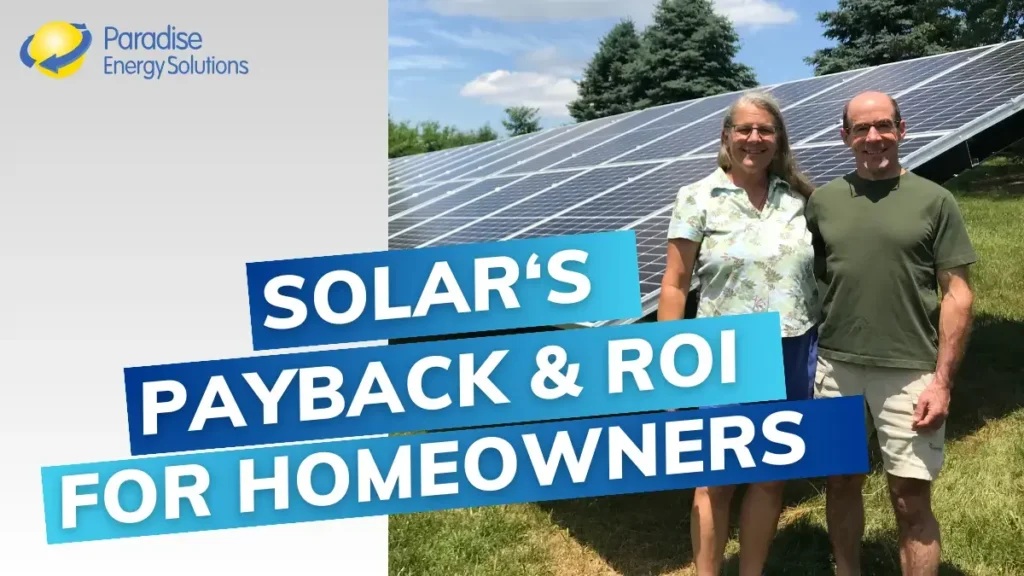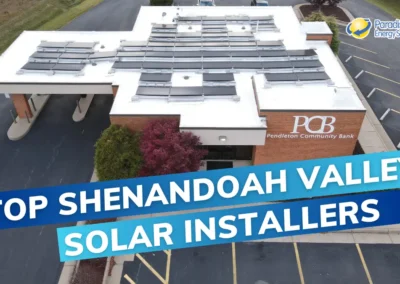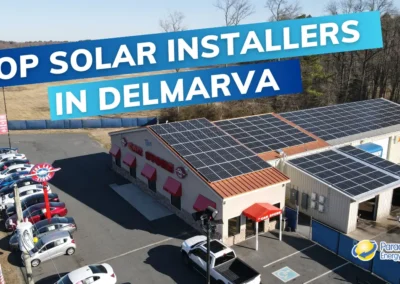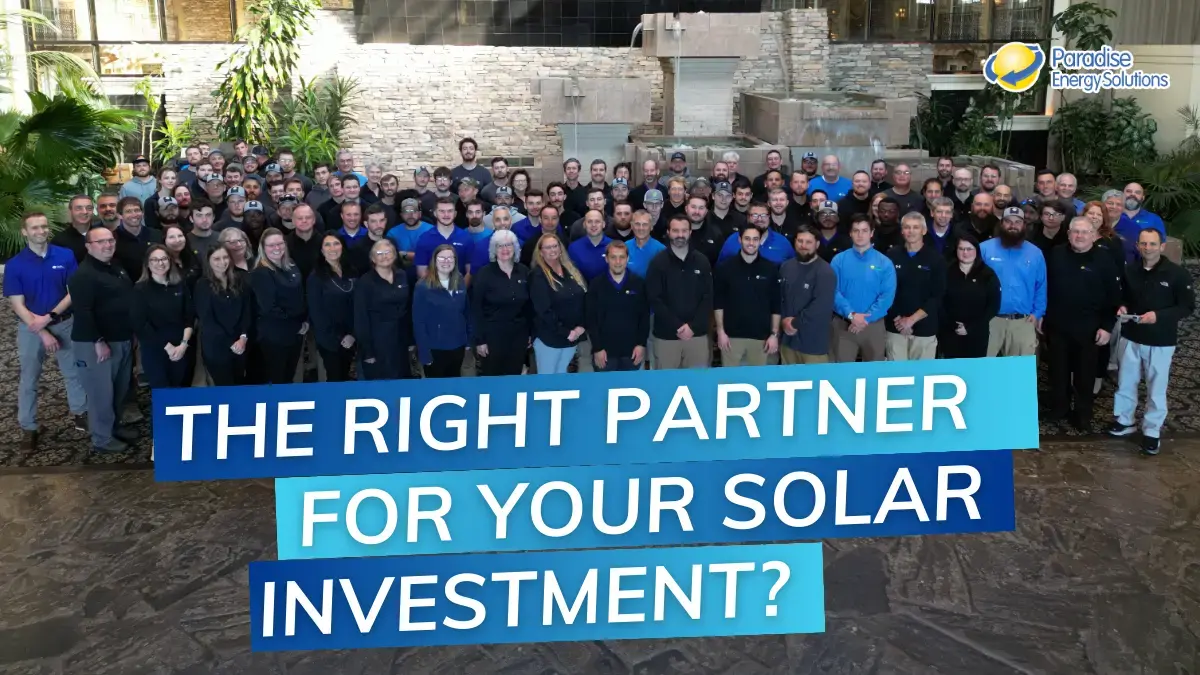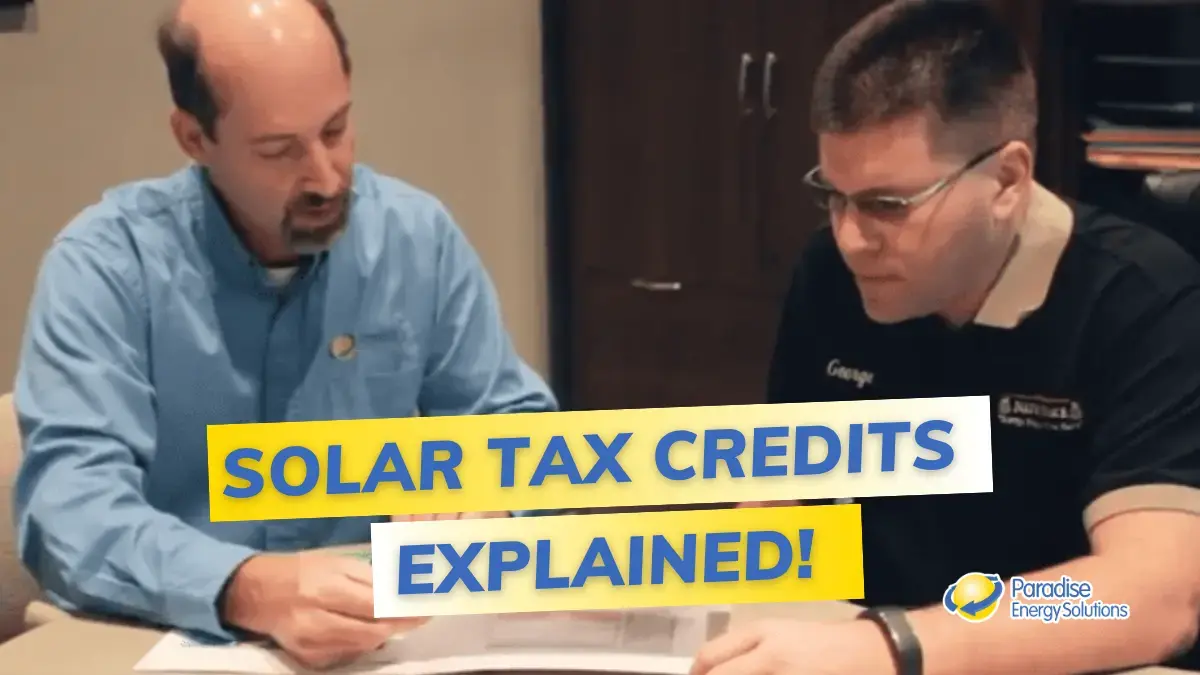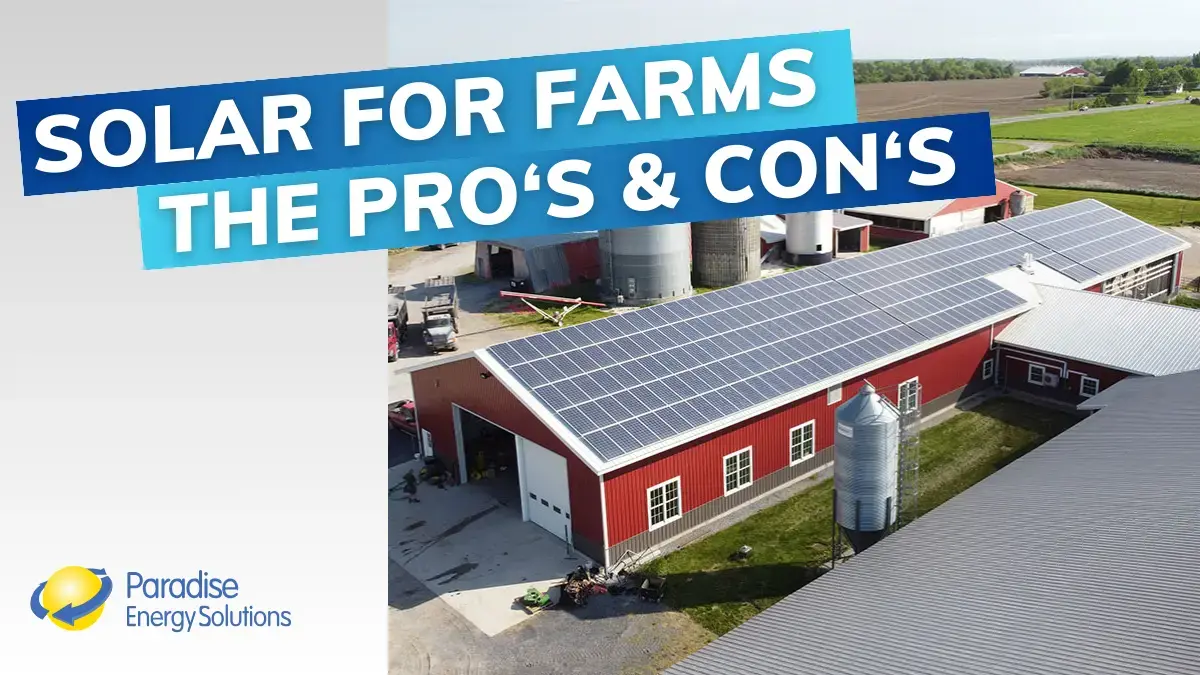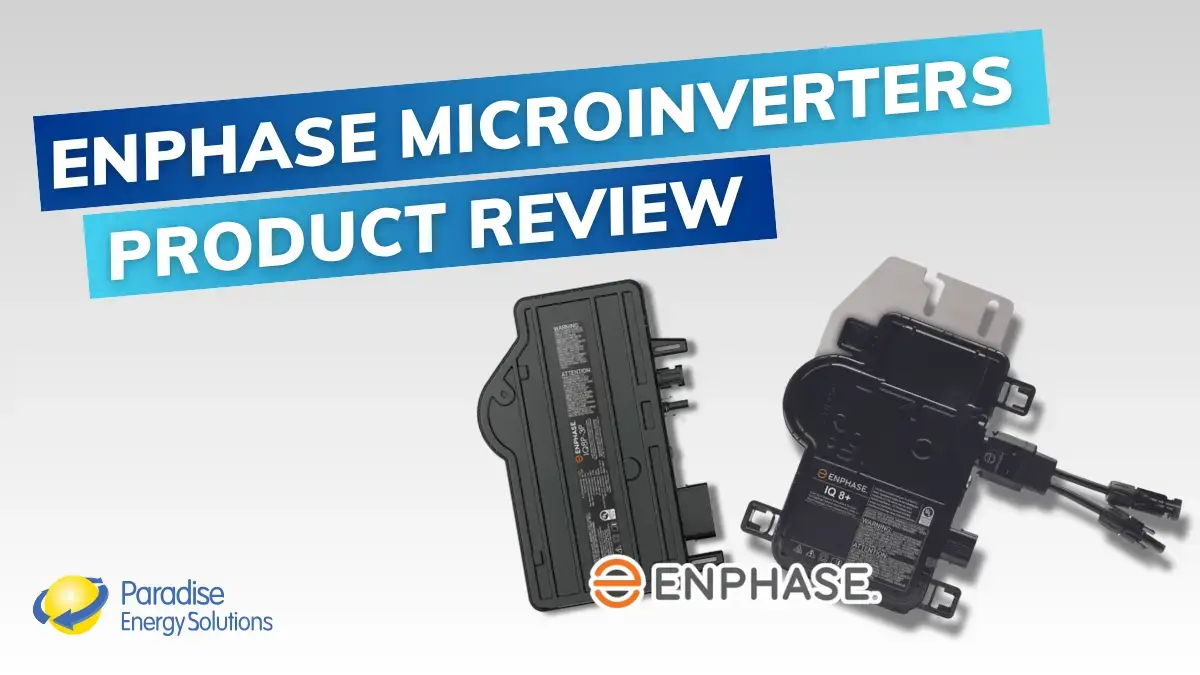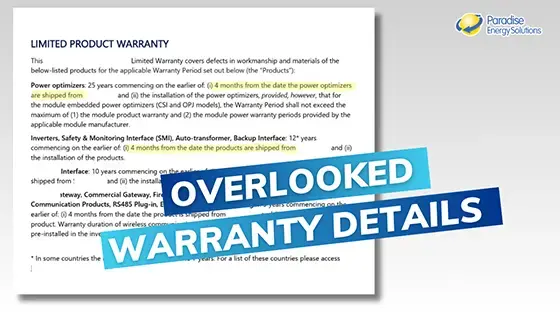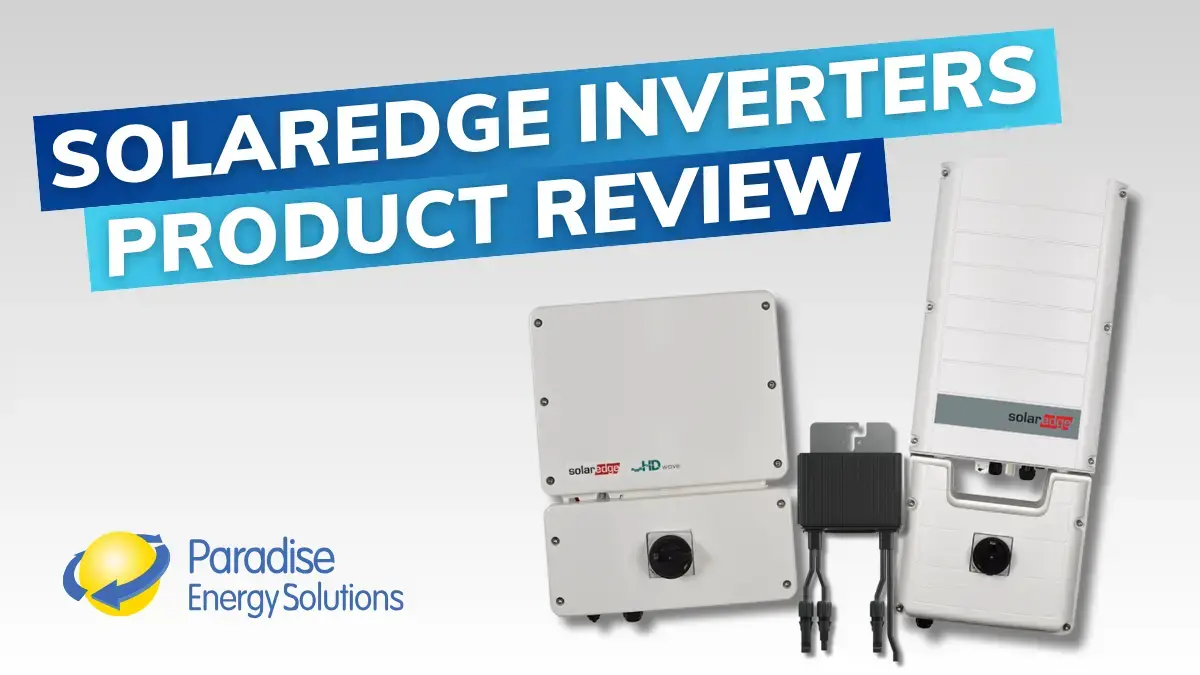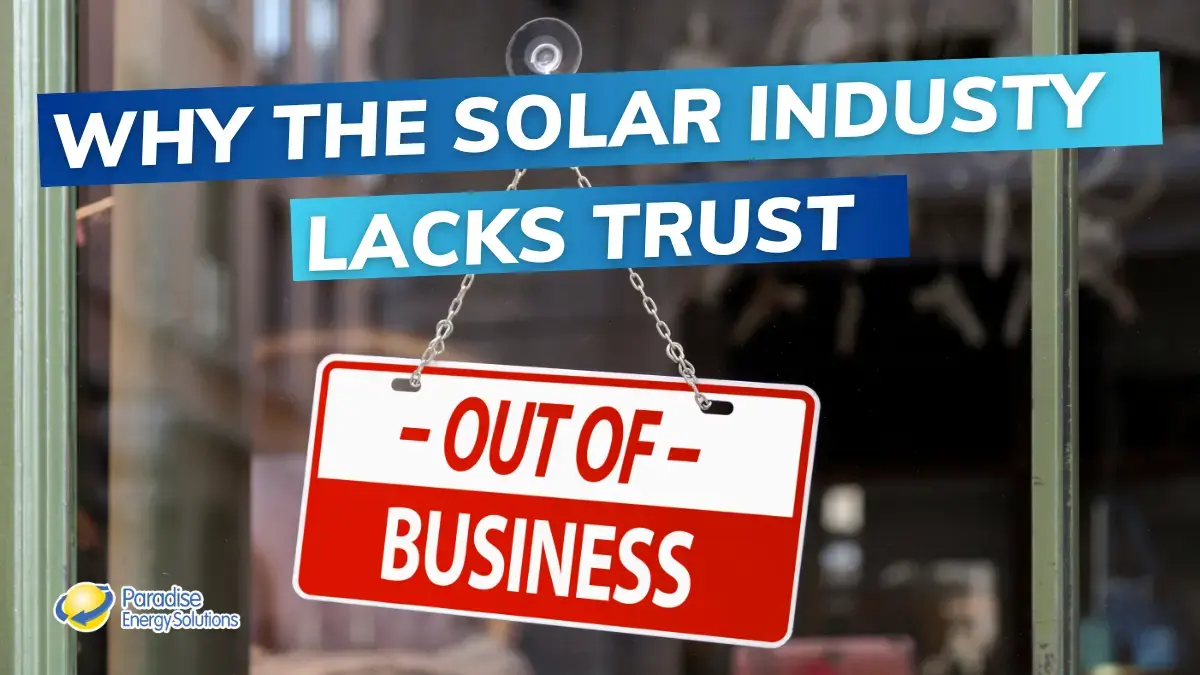Investing in a solar panel system can have powerful financial benefits for your family, putting you in control of a rising expense.
With cost-saving incentives, rising electricity prices, and varying installation costs, quantifying the specifics of this investment can be difficult without contacting a solar installer for a quote.
But to help give you a ballpark idea of what to expect, we created this blog.
We compiled the data from all the solar installations we completed in the last year to give you the average system size, return on investment (ROI), payback period, and environmental impact.
How We Made Our Calculations
The statistics shared in this blog are based on the average of all residential solar systems Paradise Energy installed in the past year. These real numbers will give you a clear picture of what you can anticipate from investing in solar energy in 2025.
It’s important to note that people’s incentives for going solar vary greatly, as do the ROIs, payback periods, system size, and more. These numbers are just averages and are meant to give you a broad idea of what you can expect. The breakdown of your investment will likely look very different from the average for your state.
If you’re interested in installing solar panels at your business, check out our blog on the ROI and payback for commercial and agricultural solar panel systems.
Solar Investments for the Following States:
Solar Payback and ROI for Residential Solar Panels in the mid-Atlantic
Solar Panel Payback and ROI for Delaware Homeowners
Many Delaware homeowners use solar energy systems to offset their electricity bills. Here’s what to expect if you decide to install solar at your home in Delaware.
Average System Size: 16 kW
What’s the Average ROI of Solar for Delaware Homeowners?
The average ROI for a solar energy system installed on a home in The First State is 7%.
What is the Average Payback of Solar for Delaware Homeowners?
Delaware homeowners, on average, will pay for their solar energy system in 18.6 years, leaving plenty of time left in the solar system’s 30+ year lifespan to produce free electricity.
What’s the Environmental Impact?
The average solar energy system offsets 11.13 tons of CO2 or saves 259 trees each year. Solar panels allow your home to make a real, measurable impact on the environment.
Solar Panel Payback and ROI for Maryland Homeowners
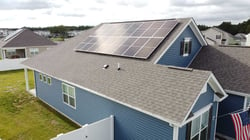 Net metering, SRECs, sales and property tax exemptions, and the Clean Energy Grant all make going solar in Maryland a great option for homeowners. If you’re considering offsetting your electricity bill with solar energy, here’s what the average investment looks like.
Net metering, SRECs, sales and property tax exemptions, and the Clean Energy Grant all make going solar in Maryland a great option for homeowners. If you’re considering offsetting your electricity bill with solar energy, here’s what the average investment looks like.
Average System Size: 14.36 kW
What’s the Average ROI of Solar for Maryland Homeowners?
The average solar ROI for homes in Maryland is 8.18%.
What is the Average Payback of Solar for Maryland Homeowners?
The average payback period for residential solar systems in Maryland is just 12 years. That leaves over half of your solar system’s life to produce 100% free electricity, as most solar panels are guaranteed for 25 years to 30 years. However, they can go on producing electricity even longer than that.
What’s the Environmental Impact?
Maryland’s average residential solar energy system will offset 13.9 tons of CO2 or save 324 trees each year. Over its lifespan, that quickly adds up to a significant reduction in greenhouse gas emissions!
Solar Panel Payback and ROI for New York Homeowners
New York may not be known as the sunniest state in America, but it is still great for solar energy. High electricity rates combined with powerful state and local incentives make solar electricity a great investment for many New York residences. The state also waives sales and property taxes for solar owners.
Unlike other states on this list, New York does not offer net metering, though they still compensate solar owners for the excess electricity they upload to the grid. They do so with the VDER Value Stack. 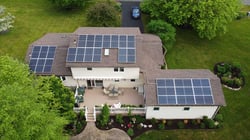
Average System Size: 13.82 kW
What’s the Average ROI of Solar for New York Homeowners?
New York homes receive, on average, an 8% ROI on their solar energy investments.
What is the Average Payback of Solar for New York Homeowners?
The average solar energy system payback period in New York is 15 years. Compared to solar panels’ guaranteed life of 25 to 30 years, that leaves nearly half of the system’s lifespan after it’s paid for itself. And just because the guarantee on your panels expires, your system could continue to work for years beyond that.
What’s the Environmental Impact?
Based on the average New York home, your solar energy system can save 6.98 tons of CO2 or 163 trees each year.
Solar Panel Payback and ROI for Ohio Homeowners
Net metering (or Net Billing), a healthy SREC market, tax exemptions, and a low-interest loan program all sweeten the deal for Ohio homeowners investing in solar. Here’s a look at what solar energy can do for your home’s finances and the planet.
Average System Size: 10.79 kW
What’s the Average ROI of Solar for Ohio Homeowners?
The ROI for solar panels for a home in Ohio is 6.2%, on average. Not only will you be helping the environment and gaining some energy independence, but you’ll also be investing your money in a tangible asset that brings value to your property.
What is the Average Payback of Solar for Ohio Homeowners? The payback period for solar panels for the average home in Ohio is 16 years. Most solar panels are guaranteed by their manufacturer for 25 or 30 years, meaning you’ll have plenty of years left to enjoy free electricity. And it’s quite possible that your solar system will go on producing electricity for years after the warranties expire.
What’s the Environmental Impact? Installing a solar system for your home in Ohio can keep an average of 10.44 tons of CO2 or save 243 trees.
Solar Panel Payback and ROI for Pennsylvania Homeowners
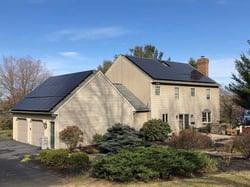 With net metering, an SREC market, and the 30% federal solar investment tax credit, installing solar energy can be a valuable investment for homeowners in Pennsylvania.
With net metering, an SREC market, and the 30% federal solar investment tax credit, installing solar energy can be a valuable investment for homeowners in Pennsylvania.
Here’s a quick look into the average solar energy system for homeowners in the Keystone State.
Average System Size: 22.7 kW
What’s the Average ROI of Solar for Pennsylvania Homeowners?
The average solar energy system for a home in Pennsylvania has a 9.66% ROI.
What is the Average Payback of Solar for Pennsylvania Homeowners?
The average payback period for solar panels installed on PA homes is 12.6 years. Depending on the brand of solar panels you install, they can be guaranteed for 25 to 30 years. That means you’ll have a decade or more of free electricity once your system reaches payback. And it’s certainly possible for your solar system to go on producing free electricity once the warranty expires!
What’s the Environmental Impact?
The average residential Pennsylvania solar energy system saves 12.93 tons of CO2 or 301 trees each year.
Solar Energy ROI and Payback for Virginia Homeowners
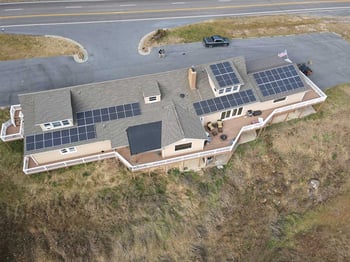 With net metering, property and sales tax exemptions, and an SREC market, a solar system can be a great investment for Virginian homes.
With net metering, property and sales tax exemptions, and an SREC market, a solar system can be a great investment for Virginian homes.
Average System Size: 14.11 kW
What’s the Average ROI of Solar for Virginia Homeowners?
The average ROI for a residential solar energy system in Virginia is 9.55%.
What is the Average Payback of Solar for Virginia Homeowners?
The solar panel payback for Virginia homeowners is 16 years on average. Most solar panels are guaranteed for 25 to 30 years but can still go on producing long after that.
What’s the Environmental Impact?
Each year, Virginia’s average residential solar system will offset 13.89 tons of CO2 or save 323 trees.
Overall Average ROI and Payback for Residential Solar Panels in the mid-Atlantic States
Was your state not included, or are you wondering how your state stacks up against the others? Here’s a look at the overall averages for all six states: Delaware, Maryland, New York, Ohio, and Pennsylvania.
Average System Size: 15.2 kW
Average Solar System ROI: 8%
Average Solar Payback Period: 15 years
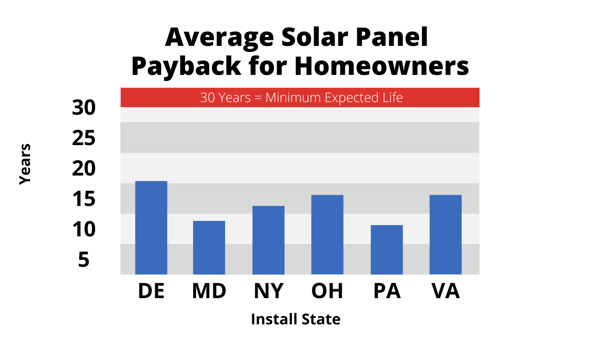
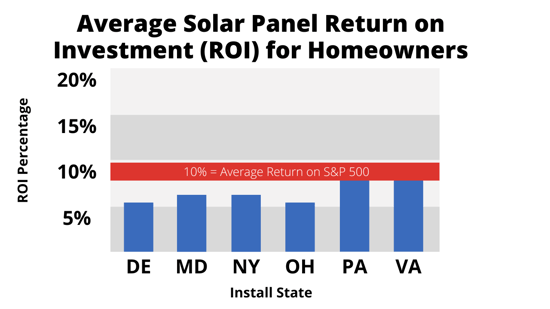
Is Solar a Good Investment for Homeowners?
While trends can be seen from state to state, the value behind each solar system is highly specific to each home. The more electricity your home uses, the higher your cost of electricity, and the more cost-saving incentives available to you, the better your investment will be.
That said, solar offers significant benefits that go beyond saving you money each month. Every solar system can have a positive impact on the environment. It will also provide a level of energy independence from utility companies, and with batteries to store energy, solar can even be a dependable backup power solution for emergencies.
Find Out the ROI and Payback for Your Solar Panel System
If you’re interested in solar energy, take the first step today and request your free, no-obligation quote. The request takes less than a minute, and you’ll be on your way to saving energy for 30+ years.
Utilize our solar payback calculator to obtain an immediate estimation of the price and return on investment for a solar system tailored to your average electric bill and location.
